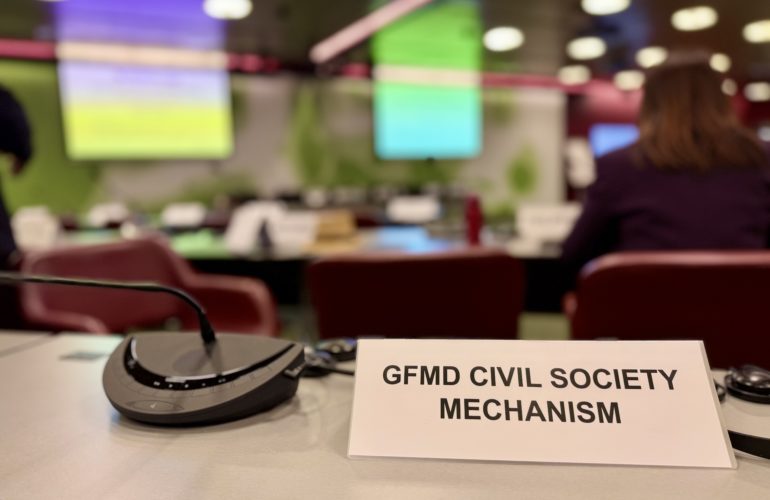New EU Pact on Migration and Asylum Is Not Yet the Fresh Start Needed, NGOs Argue
Some elements of the new Pact on Migration and Asylum for the European Union (EU) constitute a positive change in tone. However, taken as a whole, the document does not significantly counter the unsatisfactory aspects of the current system, argue a group of NGOs.

The new policy proposals released by the European Commission on 23 September 2020 bring little new to the table and risk limiting further the access to protection and fair asylum procedures. A group of 82 civil society organizations – including the Europe office of the International Catholic Migration Commission (ICMC) – analyzed the proposals in a joint statement published on 6 October.
The new proposals, which need to be debated in the European Parliament and European Council before being adopted, include some positive aspects. Among them are changes which would enable refugees to access long-term residency after three years and that would also improve their current right to move to and work in another Member State.
A mechanism for independent monitoring of fundamental rights at the border is also a welcome addition. However, argue the NGOs, for it to be truly effective “it needs to be expanded beyond the screening procedure, to be independent of national authorities and to involve independent organizations such as NGOs.”
According to the civil society organizations, the Pact’s positive aspects are far outweighed by the dangerous signals that some of its proposals are sending.
The proposed Pact introduces a mandatory procedure for the screening of asylum applications to be conducted at the border. This procedure would apply to all applicants coming from countries for which, on average, positive asylum decisions across the EU are under 20%. This screening procedure, the NGOs argue, is based “on two flawed assumptions – that the majority of people arriving in Europe do not have protection needs and that assessing asylum claims can be done easily and quickly. Neither assumption is correct.”
According to the NGOs, this will “result in two standards of asylum procedures, largely determined by the country of origin of the individual concerned [which] undermines the individual right to asylum”.
Detention of asylum-seekers is another important feature of the new Pact. Detention at the borders may last up to six months – 12 weeks for the asylum procedure and 12 additional weeks for a return procedure. This measure is at odds with making detention a measure of last resort, as advocated by civil society organizations over many decades.
Playing the Crisis Card
According to the new Pact, in times of perceived crisis – for example, when high numbers of people arrive in a Member State’s territory or even in the risk of such a situation – the use of border screening procedures can be significantly expanded, applying to many more applicants. It could potentially be applied to all applicants coming from countries for which the average positive decision on asylum claims (the ‘protection rate’) stands at less than 75%.
Detention can also be further prolonged up to a maximum of 10 months in a “crisis” situation. Member States are allowed, in this case, to suspend receiving asylum applications for periods of four weeks up to a maximum of three months.
Another strong focus of the proposed Pact is on the externalization of States’ responsibility for asylum. According to the civil society organizations, this emphasis once more fails to represent a change in perspective. “Attempts to externalize responsibility for asylum and to misuse development assistance, visa schemes and other tools to pressure third countries to cooperate on migration control and readmission agreements will continue,” the NGOs’ statement predicts.
This policy is not only bad for people in those third countries. It also risks undermining the EU’s international standing in terms of respect of human rights. The NGOs’ statement argues that the use of “informal agreements and security cooperation for migration control with countries such as Libya or Turkey risks enabling human rights abuses, emboldening repressive governments and creating greater instability.”
The Dublin regulation – the mechanism which decides which Member States are to receive asylum claims – remains largely unchanged and unchallenged. Primary responsibility remains with the first country of entry. The proposal provided an opportunity to re-think a system which has proved to be unworkable and which disproportionately affects countries at the geographical borders of the EU. The new Pact largely misses the mark.



